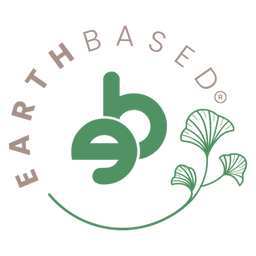One cant wrap their head around how much waste is produced and it’s a pityl that, even most of the recyclable waste ends up in the landfills. Urban India generates 62 million tonnes of solid waste per annum and only 43 million tonnes (MT) of the waste is collected, 11.9 MT is treated and 31 MT is dumped in landfill sites haphazardly.
The biggest challenge in dealing with waste is the lack of proper segregation at the sourse. How often do we see red, yellow, blue and green seperate dust bins? And even if they are placed most of us use it based on an intelligent guess from the signs and symbols on it. This lack of awareness of simple segregation is our biggest set back.
Once the waste is accumulated, more than three-fourth of solid waste management budget is spent on collection and transportation. The appalling irony is that, along with the pollution of soil and water resources, transportation of waste, leaves us with a bigger carbon footprint than the waste already generated. All this leaves one thinking what can be done at an individual level to control the waste generated.
Over the last decade many terms started showing up our walls and timelines. Recycle, thrifting, zero waste living, upcycling etc. All these concepts have the same principle in common, i.e reducing waste generation, pollution and carbon footprint. Let’s look at what each of this concept means and maybe there are practices that can be adopted to our daily life.
Reusing:
Products that can be reused again and again, to fulfill its original function or a different purpose, is the second best solution to the waste management problem. Proudly save that gifting paper in which you received gifts to rewrap next festival season and throw a cloth tote in your bag for grocery shopping.
Recycling:
When a waste product is broken down to its basic material to create a new product. Like, making egg cartons from news paper pulp. Each year 70 million tons of domestic steel scrap is used in the production of new steel. Why we lov it? Availability of recycled material puts less pressure on the environment for new resources.
Upcycling:
When a product is broken down into its basic components to create a product of better quality and value. For example, creating a virtual reality headset from recycled cardboard. Or how R-Elan, an umbrella brand of Reliance Industries is making cloths from recycled plastic bottles. How cool is that? The number of products on Etsy tagged with the word "upcycled" rocketed up from about 7,900 in January 2010 to nearly 30,000 a year later--an increase of 275 percent.
Downcycling
Incase fo some products, when broken down, it’s quality reduces each time its reused. For example, bricks or wood from demolishing sited can be used only a limited number of time. Plastic is considered the worst product for recycling as its durability fades, microscopic pieces get shaved off, and the items made from the reprocessed material are weaker than they were when they went in.
Zero Waste Living:
It’s a way of living where we consumes only what one really needs, repairing over replacing, reusing till its not feasible, donating things you dont need and segregating for recycling. The ultimate goal is to ensure waste we egenrate do not reach the landfills or oceans.
Minimalism:
Minimalsism is a way of life that encourages you to look for the purpose of each item in your possession and evaluate on how its adding value and eliminate the rest. Even though minimalist lifestyle comparatively more sustainable, the followers do not always eliminate unwanted goods in a sustainable fashion and, we think its more of an aesthetic than a way of living.
Are all these good ideas and worth following? Its safe to say, the best practice is waste reduction and segregation at source. But that alone cannot tackle the waste problem and yes, we do need these for better waste management. Both Recycling and Upcycling has less greenhouse gas emissions when compared with producing products from virgin raw materials. Thus pressure if taken off from the economy to keep generating new products.
Some countries that are leading in this criteria are Germany, Sweden and Japan. In Germany, the country that recycles the most, the residents are paid when they correctly dispose plastic and other recyclable goods. In Sweden, 99% of the waste is recycled and only 1% reaches the landfills. Japanese waste management at segregation is divided into 38 categories and only 20% of the waste reaches landfills.
It is encouraging to see these numbers, it gives us ideals and examples to look upto. But like all good changes, this too must begin at home, lets find ways to incorporate it into our lives. At EarthBased our motto is small yet meaningful steps. To help you with recycling the packaging material we send, we have partnered with dry waste management professionals in your city. Know more here.
